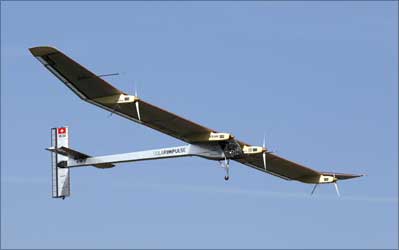
Solar Impulse, a prototype of an airplane designed to fly around the world using only solar power, made its first real flight on Wednesday.
Powered by 12,000 solar cells, the aircraft, flew for 87 minutes to an altitude of nearly 4,000 feet above the Swiss countryside.
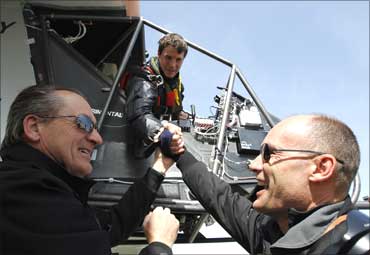
The aircraft, known by its identifier HB-SIA, has a wingspan of a jumbo jet yet weighs the same as an average sedan.
During the flight, HB-SIA lifted off Solar Impulse HB-SIA took off from Payerne, Switzerlandat just under 30 mph and a relatively short takeoff run.
The four 10-horsepower electric motors are expected to deliver enough power for a cruise speed of around 40 to 45 mph.
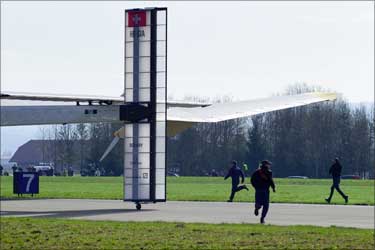
It took six years to build the carbon fibre aircraft, which has the wingspan of an Airbus A340 (63.4 metres) and weighs as much as a mid-sized car (1,600 kg or 3,527 lb).
It took six years to build the carbon fibre aircraft, which has the wingspan of an Airbus A340 and weighs as much as a mid-sized car.
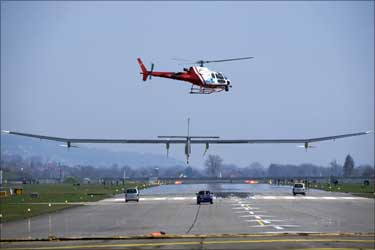
The wingspan of HB-SIA is 208 feet, that's about 10 feet more than Boeing's 787 Dreamliner and the airplane weighs only 3,500 pounds loaded for flight, about 499,000 pounds less than the 787.
The project's budget is 100 million Swiss francs ($94 million).
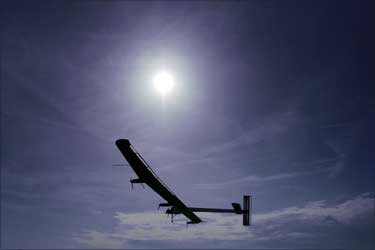
Belgian chemicals company Solvay, Swiss watchmaker Omega and German banking giant Deutsche Bank are the three main sponsors.
Ecole Polytechnique Federale de Lausanne, one of two Swiss polytechnical universities, is the scientific advisor.